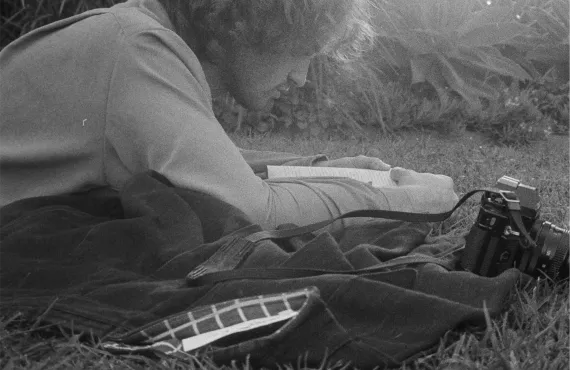What are relationship boundaries?
By Rachel Barker
First published on VICE.COM

A leaked text from Jonah Hill caused quite a commotion. In a message to his girlfriend, the actor listed a bunch of boundaries he expected her to abide by: from stopping surfing with men, to modelling, and posing in a bathing suit.
This single viral text started a global conversation about healthy boundaries – what they look like, when they cross into controlling territory and if we need them. To find out more about their place in modern relationships, we spoke with expert Eleanor Butterworth.
What is a boundary in a relationship?
Generally speaking, boundaries are expectations we set to help our relationships function at their best. For instance, you may need to tell a partner that you aren’t up to seeing them every day, as you need time in your week to see other friends or to study.
While they do help us thrive, Butterworth explains that, “they don’t exist to ensure we never feel uncomfortable, challenged or jealous in our relationships.” It’s normal to have challenges in relationships and this doesn’t always need to be settled with a new boundary.
Boundaries are also different from assumed bottom lines in relationships, like no violence or cheating.
We express our boundaries through words and behaviour, so for example, if you value being present with people, you may not check your phone when you’re hanging out with someone. This way you’re expressing a boundary – that you don’t want to be constantly contacted when with others – with your actions. If this isn’t understood by behaviour alone, you can explain to your partner that it’s important to you.
Should a relationship even have boundaries?
If you are very similar you may not need to clarify your boundaries, but for most couples talking about these expectations and standards is useful.
Some areas that most couples will establish boundaries in include “how much time they will spend together, how intertwined their friend groups and workmates are, how they spend shared money etc, how they make big decisions,” says Butterworth.
Why was Jonah Hill’s approach to boundaries so wrong?
When it boils down to it,Jonah Hill’s list wasn’t boundaries, they were rules. They didn’t reflect how Jonah was going to live his life and manage his own wellbeing, but told his partner how to live hers, without considering her needs or values.
What makes a good boundary?
Good boundaries aren’t coming from places of insecurity, jealousy, control or punishment of our partners.
How do we approach setting our boundaries in relationships?
If boundaries haven’t arisen naturally, having a proper conversation about both of your needs can be really helpful.
“The first step is to get clear in your own mind about what it is you need or are asking, and consider what impact this might have on your partner,” says Butterwoth.
It’s also important to make sure we’re telling our partners what we need, not just what they are doing wrong. There are 2 sides to a relationship (sometimes more) and it isn’t fair to imply that your needs are objectively ‘right’.
It’s good to check in on our own behaviour and make sure we’re being as reasonable with our partner as we would want them to be with us – but if a boundary has been set that goes against your core needs or values then you need to let them know it isn’t attainable.
Unfortunately, our boundaries are not always compatible with other people’s – and compromise cannot always be reached. Butterworth explains that “If you both need fundamentally different things to live in line with your values a relationship may be untenable.”
When are boundaries not helpful?
Butterworth explains that an over reliance on boundaries to cope with a relationship might be a problem.
“I think of it like playing whack-a-mole, if new unbearable feelings keep springing up for you in your intimate relationship and you try to manage these with more and more boundaries, there may be internal work that goes deeper than your current relationship that is needed,” she says.
In this case, Butterworth suggests reaching out to a helpline or therapist.
You may also like
-
 Read
ReadDo you like your partner as a person, or do you like the lifestyle they offer you?
Advice, Relationships














